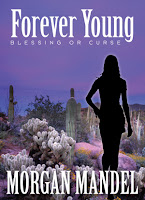by Linda Thorne
 When was the last time I got up in the morning and asked myself what I wanted to do with my day? Since I started writing, being able to juggle time on a whim seems to hinge on whether or not I’m working a day job. Well, I've been working a full-time job now for over eight years.
When was the last time I got up in the morning and asked myself what I wanted to do with my day? Since I started writing, being able to juggle time on a whim seems to hinge on whether or not I’m working a day job. Well, I've been working a full-time job now for over eight years.I was between jobs when I first decided I wanted to be a writer. I worked hard at writing, but I also had time for me. Then a manufacturing company in the Central Valley of California hired me for a position in my profession, human resources management. The free time immediately disappeared and didn't return until two years later when the plant closed down. Once more unemployed, money was tight but time available.
After the plant closure, my husband and I moved to middle Tennessee. I found a new human resources position at a company in Nashville, now my current employer. When I began this stint of eight-years-plus, writing time became crunch time, which transformed into crushed time in 2014 when I got my first publishing contract, and then into shredded pieces of time when my book was published last year.
So, this is what writing while working a day job means to me. When I get home from work and dinner is out of the way, I’m normally tied up on my computer with social media and emails, all part of routine book marketing/promotion. On certain days of the month, instead of going home after work, I head off to the local Sisters in Crime meeting, or an after-work author event. On the weekends, I sometimes attend writing activities or regular Nashville Writers Meetup critique groups. My vacation time is spent at writers’ conferences, conventions, or festivals. I will admit these are fun, but they are also working vacations. Even my lunch breaks at work are spent catching up on my reading, another necessity to improving my writing. I do this in my car except for the hot days of summer when I take my lunch break in a nearby hospital lobby.
Now, you’ll hear people say that working a day job is the ultimate motivator in getting your writing done. Some will tell you that you’re more apt to maximize that time rather than squander it since it’s all you have. They’ll go on to say you can’t write all of the time anyway, so you should have time for a day job.
Who are these people? Where do they come from? I ask you.
Maybe they have a magic secret. I don't know. Sure, you’re not going to be able (or want) to write all of the time, but even without a full-time job, you wouldn’t have time for solely writing. There’s the promotion and marketing, getting visibility for your name and your writing projects. There are family obligations, old friends (if you have any left), and personal errands. Let’s not forget sleeping.
If I didn’t have the day job, not only could I spend more time on writing and promotion, I could do some of the things I’ve had to give up. For example, I’d love to go out to a movie again or watch more than just
 the national news on TV. How fun to pack up and leave for a non-working vacation, to sleep in late on occasion. I want to go out to lunch the traditional way, to a restaurant. Sometimes I want to scream out, “Give me my life back!”
the national news on TV. How fun to pack up and leave for a non-working vacation, to sleep in late on occasion. I want to go out to lunch the traditional way, to a restaurant. Sometimes I want to scream out, “Give me my life back!”
Having said these words, I’m taking a heavy sigh and returning to reality. I need my day job, so I’m grateful to be employed. As far as the writing, I remind myself that I’m the one who chose to go into it hook, line, and sinker, and it’s not like I wasn’t forewarned. So, I may grumble here and there, but I’ll keep on and see where this life I’ve chosen takes me. After all, I'd like to be there if any of the what ifs come to fruition.
website: http://www.lindathorne.com











